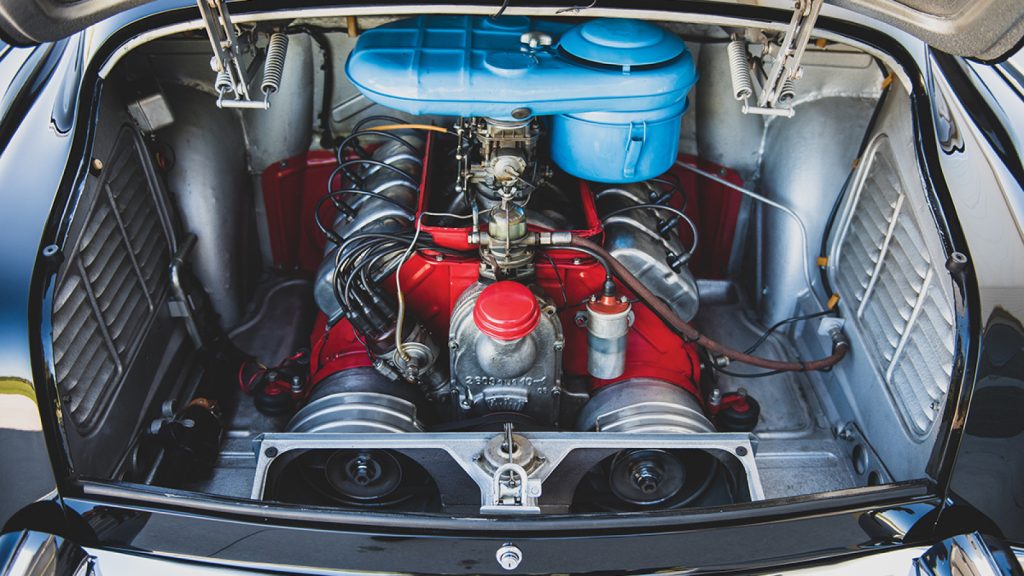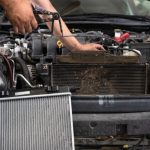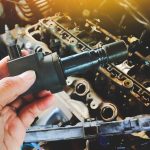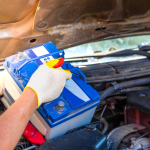Owning a vintage car is like owning a piece of history. These cars tell stories of a bygone era and stand as symbols of automotive craftsmanship. However, they come with a unique set of challenges, particularly when it comes to maintaining a vintage car engine. Unlike modern vehicles, the upkeep of a vintage car engine requires careful attention and a deeper understanding of how these older engines work. By following a consistent maintenance plan and giving your vintage car engine the care it needs, you can keep it running smoothly and extend its life.
Why Vintage Car Engine Maintenance Is Important

A well-maintained vintage car engine ensures your classic car not only runs well but also retains its value. Classic cars are an investment, and their worth is significantly influenced by how original and functional the engine remains. A vintage car engine operates under different conditions than today’s engines. These engines were built in an era of leaded gasoline, simpler fuel systems, and often larger, more mechanical components.
When it comes to vintage car engines, neglect can lead to irreversible damage. Even though many of these cars were built to last, they are now several decades old. Time and wear take a toll on any mechanical system, especially engines. Regular maintenance ensures that small problems don’t turn into major, expensive repairs that could reduce the car’s value and historical integrity.
Understanding the Mechanics of a Vintage Car Engine
A vintage car engine is a piece of art in itself. Unlike modern engines that are filled with electronic components and computers, a vintage car engine is primarily mechanical. The engines rely on a carburetor to mix fuel and air, and the ignition system typically uses points and a condenser rather than the electronic systems found in today’s cars.
Understanding the mechanics of a vintage car engine is crucial when performing maintenance. While the simplicity of older engines means fewer electronic malfunctions, it also means that a higher level of mechanical precision is required. For example, properly tuning a carburetor is essential for efficient engine performance. If not adjusted correctly, it can lead to inefficient combustion, poor engine performance, and even damage over time.
Older engines also require more frequent adjustments and tuning, especially when it comes to the timing, carburetor settings, and spark plugs. By having a basic understanding of how your vintage car engine works, you’ll be better equipped to perform routine maintenance and spot potential issues before they become serious.
Regular Maintenance for Your Engine
Maintaining a vintage car engine requires dedication and consistency. One of the first tasks in your maintenance routine should be regular oil changes. Older engines tend to produce more carbon buildup, and with modern oils often not being formulated for these engines, it’s crucial to use oil that is specifically designed for vintage cars. This will help protect engine components and ensure smoother operation.
Pay attention to the cooling system of your vintage car engine as well. Many classic cars were built with cooling systems that can deteriorate over time due to corrosion or wear. Regularly check the coolant level, and inspect for leaks or rust in the radiator or hoses. Overheating can cause significant damage to a vintage car engine, so maintaining the cooling system is key to avoiding more severe issues.
In addition to oil changes and coolant checks, regularly inspect the engine for leaks. Vintage car engines are more prone to oil and fuel leaks because gaskets and seals tend to wear down over time. Addressing these leaks early prevents further damage and helps preserve engine performance. Taking the time to care for these aspects of your engine ensures that it remains functional for many years to come.
Using Proper Fluids for Your Car Engine
Fluids are the lifeblood of your vintage car engine, and using the correct ones can make all the difference in the longevity of your vehicle. As mentioned earlier, oil formulations have changed over the years, and modern oils may not provide the same protection that older oils offered. Look for oils specifically labeled for vintage or classic cars. These oils typically contain higher levels of zinc and phosphorus, which are important for the protection of flat-tappet camshafts found in many vintage car engines.
Likewise, the fuel your vintage car engine uses needs attention. Modern gasoline contains ethanol, which can corrode parts of a vintage car engine, especially rubber and plastic components. Consider using ethanol-free fuel or adding fuel stabilizers designed to protect the engine from ethanol damage. This will prevent deterioration in your engine’s fuel system and preserve its functionality.
The cooling system also requires special attention. Many vintage cars use different types of coolant than modern vehicles. Always ensure you are using the proper coolant for your vintage car engine, as using the wrong type could lead to corrosion or poor cooling performance.
Storing Your Vintage Car Engine Safely
Storage is another vital aspect of maintaining a vintage car engine. Poor storage conditions can wreak havoc on an engine, especially if the car sits for long periods without running. If your vintage car is stored for extended periods, consider starting the engine every few weeks to keep fluids circulating and prevent seals from drying out.
Humidity and temperature changes can also impact the engine’s condition. Keeping the car in a climate-controlled garage is ideal for preserving the engine. If that’s not an option, ensure the car is covered and protected from moisture and extreme temperature fluctuations. This will help preserve the vintage car engine and reduce the chances of rust and other damage.
Before storing the car, it’s wise to change the oil and filter, add fuel stabilizer to the gas tank, and disconnect the battery. These small steps can make a significant difference in the health of your vintage car engine when it’s time to bring it back on the road.
Finding the Right Mechanic for Vintage Car Engine Repairs
Not all mechanics are equipped to handle the intricacies of a vintage car engine. While modern engines are filled with computerized diagnostics, vintage engines require a different set of skills. Finding a mechanic who specializes in classic cars is essential when major repairs are needed.
Classic car mechanics will understand the specific needs of your vintage car engine, from sourcing rare parts to knowing how to rebuild and tune the carburetor. They’ll also have the right tools to perform adjustments that aren’t needed in modern cars, such as setting the ignition timing or balancing the carburetor.
It’s often helpful to join classic car clubs or online forums to find recommendations for vintage car mechanics in your area. Fellow vintage car enthusiasts can offer valuable insight into where to find trusted professionals who have experience working with older engines.
Driving Your Vintage Car Regularly to Keep the Engine in Shape
While it’s important to store your vintage car carefully, it’s also vital to drive it regularly. A vintage car engine performs best when it’s used. Letting the car sit for too long can lead to issues such as gaskets drying out, seals shrinking, and the fuel system becoming clogged.
Driving your vintage car keeps the engine lubricated and ensures that all moving parts remain in good working condition. However, it’s essential to drive it carefully. Avoid pushing the engine too hard, and give it time to warm up properly before taking it on the road. This approach helps extend the life of your vintage car engine while allowing you to enjoy the experience of driving a classic car.
Conclusion
Caring for a vintage car engine is a labor of love that pays off in the long run. By following regular maintenance routines, using the right fluids, storing the vehicle properly, and finding the right mechanic, you can ensure that your vintage car engine runs smoothly for years to come. The beauty of a vintage car lies in its craftsmanship, and maintaining its engine is key to preserving its legacy











